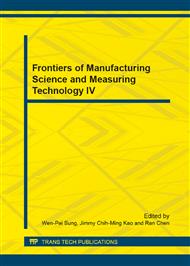p.574
p.581
p.587
p.591
p.595
p.599
p.603
p.608
p.612
Multi-Type of Generators Scheduling Optimization Model Based on LHS Method and the Mean-CVaR Model
Abstract:
In order to study the multi-type of generators scheduling optimization model,this paper is based on the LHS method and Mean - CVaR model for research. LHS method is informed as an improved method which can overcome the disadvantage of wind power simulation method of the most commonly used - the monte carlo method which needs a lot of statistical data. Scheme - CVaR model set the minimum electric abandon the wind as the goal, then select the minimum system energy consumption of power generation cost and the minimum pollutant emissions from power generation as the objective function of system combined power generation performance of scheduling ,then under certain constraints, and finally reach the purpose of optimized we expected. Key words: LHS method, Mean - CVaR model, Kantorovich distance
Info:
Periodical:
Pages:
595-598
Citation:
Online since:
August 2014
Authors:
Keywords:
Price:
Сopyright:
© 2014 Trans Tech Publications Ltd. All Rights Reserved
Share:
Citation:


